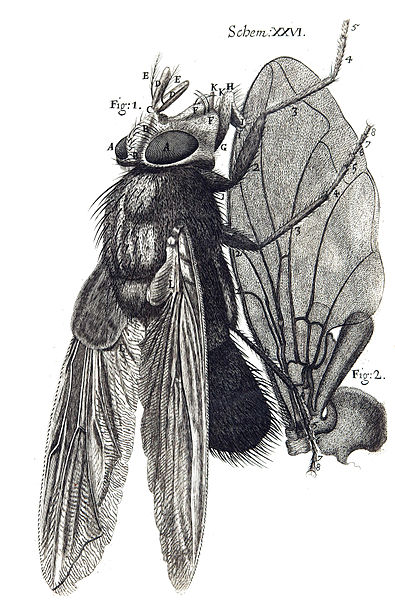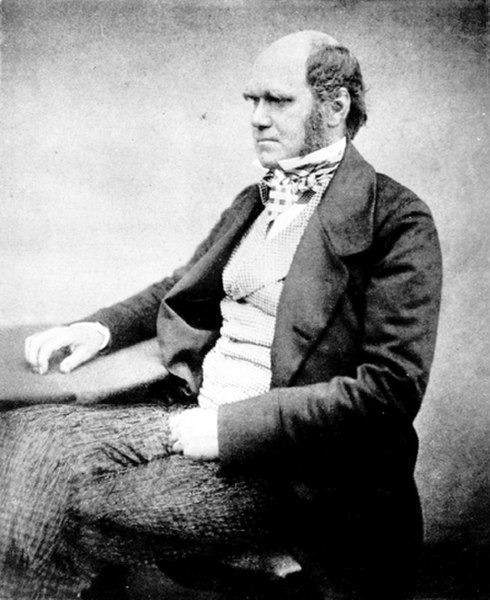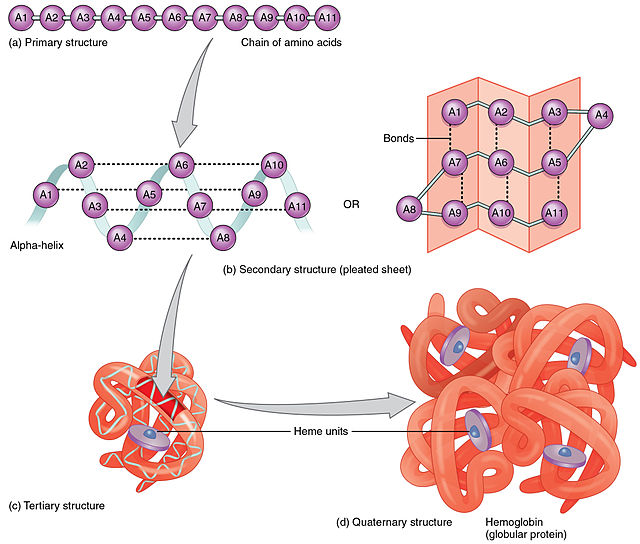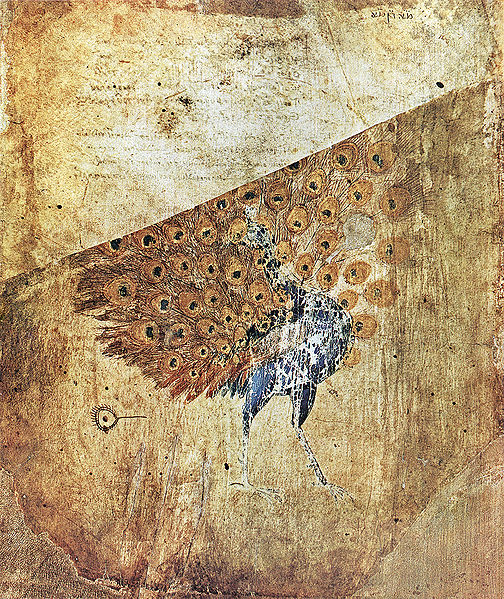Biology is the scientific study of life. It is a natural science with a broad scope but has several unifying themes that tie it together as a single, coherent field. For instance, all organisms are made up of cells that process hereditary information encoded in genes, which can be transmitted to future generations. Another major theme is evolution, which explains the unity and diversity of life. Energy processing is also important to life as it allows organisms to move, grow, and reproduce. Finally, all organisms are able to regulate their own internal environments.
Biology is the science of life. It spans multiple levels from biomolecules and cells to organisms and populations.
Diagram of a fly from Robert Hooke's innovative Micrographia, 1665
In 1842, Charles Darwin penned his first sketch of On the Origin of Species.
The (a) primary, (b) secondary, (c) tertiary, and (d) quaternary structures of a hemoglobin protein
Science is a rigorous, systematic endeavor that builds and organizes knowledge in the form of testable explanations and predictions about the world. Modern science is typically divided into three major branches: the natural sciences, which study the physical world; the social sciences, which study individuals and societies; and the formal sciences, which study formal systems, governed by axioms and rules. There is disagreement whether the formal sciences are science disciplines, as they do not rely on empirical evidence. Applied sciences are disciplines that use scientific knowledge for practical purposes, such as in engineering and medicine.
The Plimpton 322 tablet by the Babylonians records Pythagorean triples, written in about 1800 BCE
Plato's Academy mosaic, made between 100 BCE to 79 AD, shows many Greek philosophers and scholars
The first page of Vienna Dioscurides depicts a peacock, made in the 6th century
Drawing of the heliocentric model as proposed by the Copernicus's De revolutionibus orbium coelestium








